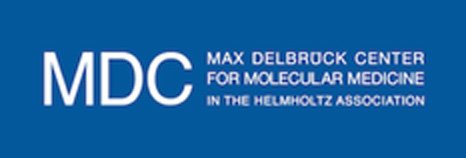Max Delbrück Center for Molecular Medicine

The Max Delbrück Center for Molecular Medicine is a major biomedical research institute located in the northeastern corner of Berlin, Germany. The MDC was founded in 1992 with a mission of translating discoveries from molecular research into applications to improve the prevention, diagnosis, and treatment of major human diseases. The site in Berlin-Buch, home to hospital clinics, research institutes and a flourishing biotech industry, is fertile ground for interdisciplinary and patient-oriented research. As a testament to its success, the MDC has been ranked 14th in the Thompson Reuters list of the world’s 20 best research institutes for molecular biology and genetics, based on our publication record.
Currently about 1,400 staff members and guests work at the MDC. The annual institutional budget amounts to approximately 68 million Euros, 90 percent of which is received from the federal government and 10 percent from the State of Berlin. This is complemented by about 24 million Euros obtained by MDC researchers through grants and other external sources. The work of the MDC’s 57 research groups centers around three classes of disease which have an enormous impact on society:
- Cardiovascular and metabolic diseases
- Cancer
- Nervous system disorders
Translational research, bringing the latest science from the bench to the bedside, is carried out within the framework of the Experimental and Clinical Research Center (ECRC) – the centerpiece of our collaborations with the Charité-Universitätsmedizin. The ECRC comprises research labs and several outpatient clinics, clinical training programs, and offers funding for groups and specific translational projects, enabling close collaboration between MDC researchers and clinical scientists of the Charité.
The MDC has placed a special emphasis on systems biology, and a major unit called the Berlin Institute for Medical Systems Biology (BIMSB) has been established to pursue this theme in close collaboration with existing groups. The scientific focus of BIMSB is posttranscriptional gene regulation with a particular emphasis on the role of microRNAs in health and disease. Work at the institute is supported by high-throughput technology platforms for mass spectrometry, flow cytometry, confocal and two-photon microscopy, electron microscopy and magnetic resonance tomography, along with bioinformatics services and advanced data modeling , for example mathematical cell physiology.
With over 300 PhD students in several graduate programs, the MDC is helping to educate a new generation of scientists. In addition, the MDC has an extensive program for public education that includes lectures and conferences, press and news services, a range of publications for non-specialists, and tours of the campus and its laboratories.
The MDC works closely with the Leibniz Institute for Molecular Pharmacology (FMP) on the Berlin-Buch campus, with which it has established joint research groups and technology platforms. The extensive campus biotechnology park, comprising nearly 50 companies and 750 employees, is managed by BBB Management GmbH. The BBB also runs the Gläsernes Labor, a teaching lab that welcomes over 10,000 pupils and their teachers each year, and a major attraction for the public during the Berlin Long Night of the Sciences.
A wide range of institutional collaborations have been established with virtually all the major institutes in Berlin, including the Benjamin Franklin university clinic in Steglitz, Max Planck Institutes, Humboldt University, the Freie Universität Berlin, and a long list of international partners.